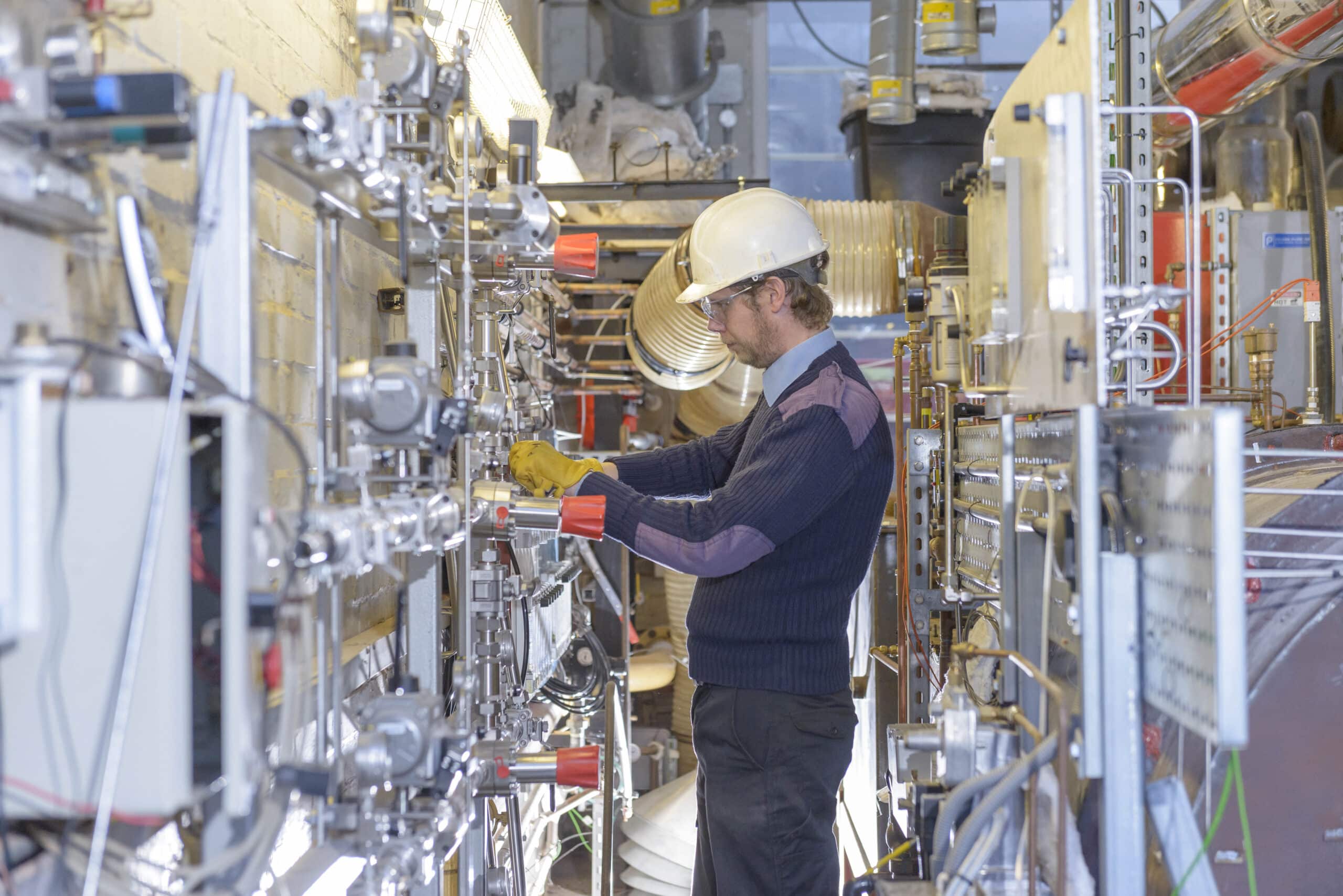Cranfield University is a specialist postgraduate university, and according to the Research Excellence Framework 2021, 88% of its research is classed as world-leading or internationally excellent. QS World University Rankings by Subject 2023 place the university in the global top 30 for Engineering – Mechanical, Aeronautical and Manufacturing and HESA 2020/21 states that it has the largest number of taught postgraduate mechanical engineering students in the UK. The UK Office for Students in 2022 even recognised Cranfield University as a world-leading specialist provider in recognition of its global reputation and quality education impacting professional industries.
Such achievements reflect the excellent education and research that take place here — and befiting the high ambition of its School of Water, Energy and Environment. Courses here address the world’s big environmental and sustainability challenges, such as reversing climate change and biodiversity loss; underpinning global food security; achieving net zero; providing energy security and addressing energy poverty; delivering resilient water resources; and enabling sustainable and regenerative agriculture. “Cranfield University’s School of Water, Energy and Environment is known for its world-class expertise and unrivalled large-scale facilities and partnerships with industry, government and business, allowing us to create, curate and transform knowledge to develop solutions for environmental and sustainability challenges,” says Zaheer Nasar, Lecturer in Atmospheric Aerosols.
Each discipline considers the current landscape, ensuring students have the most up-to-date information. For instance, the Environmental Engineering MSc is accredited by CIWEM, CIWM, and IAgrE. “The courses and research within the School of Water, Energy and Environment are closely aligned with societal challenges and government, business and industry needs,” says Nasar. “The university has in place regular monitoring procedures for quality assurance, including an Annual Reflective Review for each course. Each course has an Industry Advisory Panel (or similar) to engage with external stakeholders on curriculum design and currency of course content.”

Source: Cranfield University
This master’s programme has eight modules: Environmental Risks (Hazard, Assessment and Management); Modelling Environmental Processes; Waste Management in a Circular Economy: Reuse, Recycle, Recover and Dispose; Land Engineering Principles and Practices; Process Emissions and Control; Cleantech in Water-Energy-Food Nexus; Water-Energy-Food Nexus Approaches; and Catchment Management. “These are aimed at enabling our graduates to understand the proximal and distal determinants of environmental risks and designing sustainable socio-ecological engineering solutions for today’s as well as future environmental challenges,” adds Nasar.
The Water and Wastewater Engineering MSc, also accredited by CIWEM, is led by world-leading academic staff. Heather Smith, senior lecturer in Water Governance, specialises in research on the policy and governance aspects of the water sector, especially how they influence the development and adoption of different technologies. Her expertise encourages students to think outside of the box. “We have a tendency to radically rethink seemingly mundane technologies to try and put them at the forefront of sustainability,” says Smith. “One example was our participation in the ‘Reinvent the Toilet Challenge’ that was established by the Bill and Melinda Gates Foundation, where we proposed a self-contained toilet that could treat its own waste, avoiding the need for a sewer. This is also a key part of how we teach – challenging students to rethink accepted wisdom and practices.”
With an integral understanding of public health and the importance of creating safe and sustainable drinking water and sanitation services for all, students of this MSc work towards making fundamental changes to our systems. “We need water and wastewater technologies to use less energy, produce fewer greenhouse gas emissions, be less reliant on chemical inputs, and focus on recovering and reusing valuable resources instead of creating dangerous waste products,” says Smith. “These are the kinds of issues that Water and Wastewater Engineering graduates will be well-equipped to deal with because they will have a sound understanding of the links between technology, society and the environment.”

Source: Cranfield University
For those who want to learn state-of-the-art mechanical engineering methods and apply them to real-world problems via industrially focused modules and research projects, there is the Advanced Mechanical Engineering MSc. Not only is Cranfield University ranked in the UK’s top five for mechanical engineering, but this degree gives students engineering skills and experiences that are transferable to other sectors, including energy, aerospace, automotive or manufacturing.
However, if your interests align more with making an impact on climate change, choose the Advanced Chemical Engineering MSc. As graduates, you’ll play an important role in net zero energy transition and the planet’s future, alongside mitigating the impact of traditional oil and gas. Chemical engineers from the School of Water, Energy and Environment are trained to imagine, design, optimise and commercialise ground-breaking technologies to achieve net zero.
Working along the same lines towards creating a sustainable future, the Design Thinking MDes helps students master the power of creative thinking to develop novel ideas. Designed for (but not exclusive to) creative professionals, this degree teaches you how to develop a long-term career whilst heading for a sustainable world. Successful students have been part of numerous industries, including product, manufacturing and service industries in the private sector and public sector organisations such as environmental protection agencies, non-governmental organisations (NGOs), and design, environmental and business consultancies.
Advance your skills and knowledge at Cranfield University’s School of Water, Energy and Environment; click here to apply now.
Follow Cranfield University on Facebook, Twitter, LinkedIn, Instagram and YouTube













